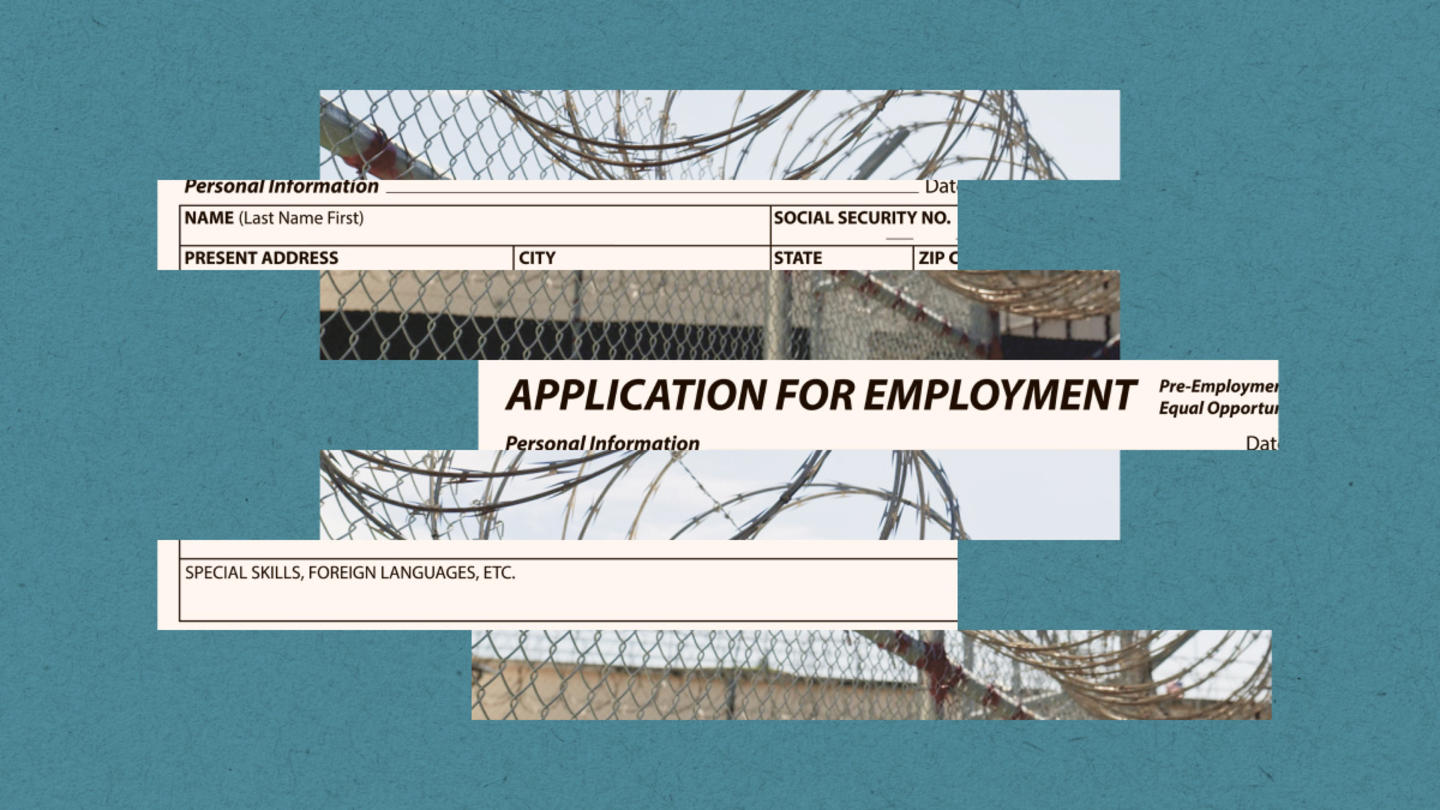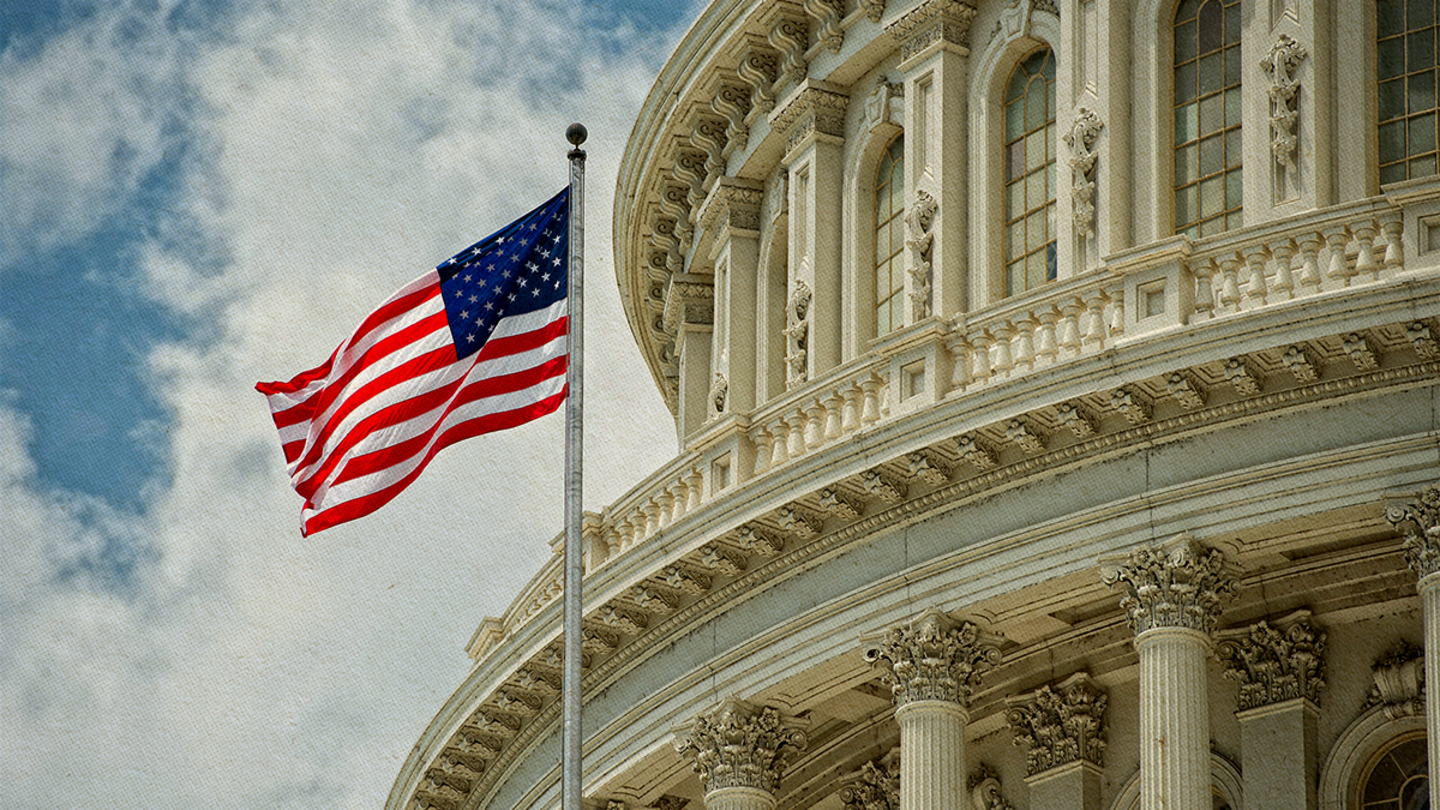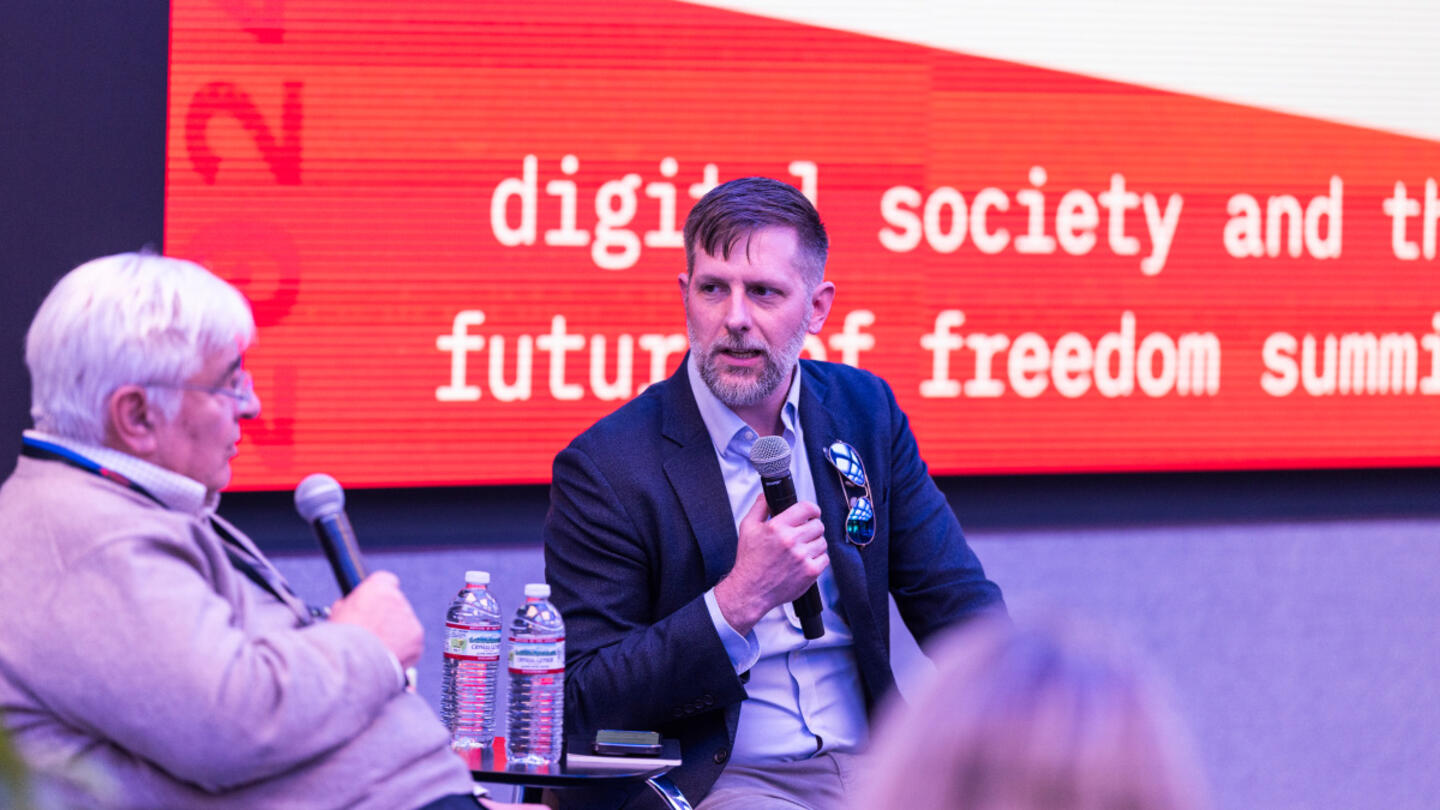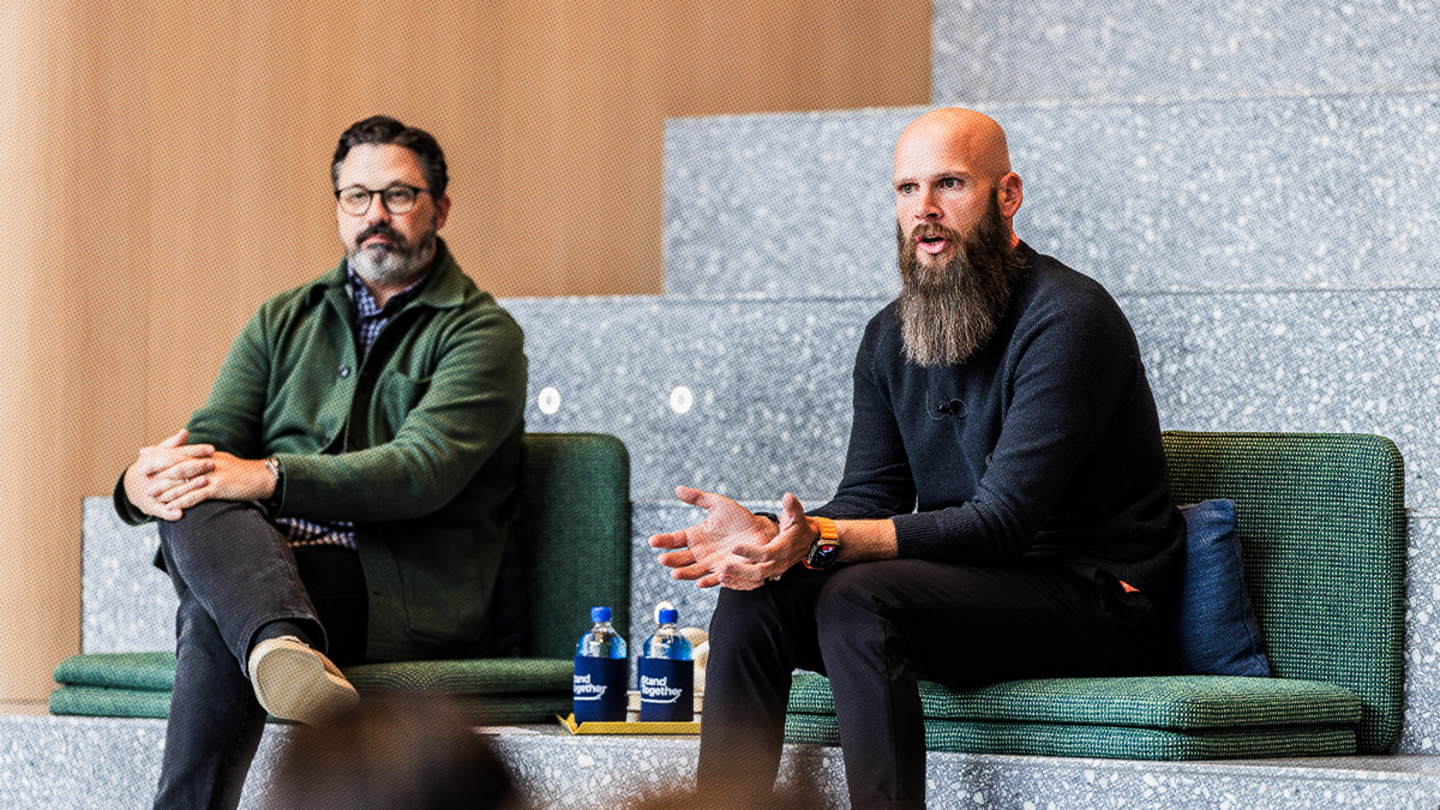Nick Browne knew that getting a job after 20 years of incarceration would be a challenge. But even he was surprised by how hard it was.
Employers offered him jobs only to rescind them when his background check came through. He desperately wanted to work, but his background felt like an insurmountable barrier.
Then Browne found First Step Staffing, a nonprofit staffing agency that provides opportunities for people like Browne who face barriers to employment. First Step's goal is rapid employment — 72 hours or less — without a lot of hoops to jump through.
First Step Staffing starts with trust, explains CEO Amelia Nickerson. "You show up, and you can pass a drug test and have two forms of ID, we're gonna try and find you a job."
Browne's experience struggling to find work isn't an anomaly. Barriers to employment — whether it's a criminal record, homelessness, disability, inadequate child care, or even a lack of transportation — affect millions of Americans. The National Conference of State Legislatures estimates that more than 70 million people in the United States struggle to get hired because of their histories.
"Our mission at First Step Staffing is to restore dignity through employment," says Chief Mission Officer Kellie Brownlow. "We employ individuals who have significant barriers to employment — criminal records, recently incarcerated, chronic unemployment. And they come to us, and we say yes to the people everybody else says no to."
As soon as he heard about First Step, Browne walked three miles to their Atlanta office. By the next day, he was working at a carpet warehouse. That was two years ago. "I've been working ever since," he says.
Helping people lift themselves up
Greg Block, an Atlanta entrepreneur, founded First Step Staffing in 2007 after spotting a gap in the city's assistance marketplace. At the time, city officials told him their biggest issue was homelessness.
"There were a lot of work readiness programs," Block says, "but there weren't really jobs at the end of them. So we decided to start First Step Staffing to create that pipeline."
For Block, it wasn't enough to support people while they struggled with homelessness. He wanted to provide a solution. It was about helping people lift themselves out of poverty by giving them opportunities to work.
"He wanted to find a way to employ as many people experiencing homelessness as possible," says Nickerson. "Staffing is infinitely scalable." First Step serves the light industrial, logistics, manufacturing, and hospitality sectors.
Block was diagnosed with terminal cancer in 2013. Knowing his time was limited and wanting to expand First Step's reach, he raised funds for First Step to purchase a much larger for-profit agency.
"Overnight First Step went from having about $2 million in revenue and being able to help about 100 people a year to $17 million in revenue and way more access to jobs," says Nickerson.
First Step has used the acquisition model to open locations in seven more cities nationwide. The organization also expanded its target population to include anyone experiencing significant barriers to employment, including veterans, recently incarcerated individuals, and people recovering from substance use disorders.
Block died in 2020, but not before leaving an invaluable legacy. Since its inception, First Step has provided jobs for more than 25,000 workers and paid more than $49.5 million in wages. It is 95% self-sustaining. It is the largest nonprofit staffing agency in the country and continues to expand into new areas, overcoming employment barriers for thousands of people every year.
First Step Staffing is a bridge to a better life
In the United States, unemployment among formerly incarcerated individuals is 27%. That's higher than even the Great Depression. Rates of recidivism — reoffending or new convictions — are also high. For state convictions, it's nearly 68% within three years of release.
Browne fears he might have been part of that statistic if it hadn't been for First Step. "If I'd have been doing anything, breaking the law, it would have been to feed myself," he says. "It would have been to shelter myself."
Brownlow has seen firsthand how challenging it is for formerly incarcerated individuals to re-enter society. She points out that they need to pay more for apartments because of their history and have to put down three times as much as others. "They already paid their 38 years," she says. "How long do we make them pay?"
Research suggests that stable employment post-release can cut recidivism rates by nearly two-thirds. First Step is making communities safer by offering rapid employment, retention services, and reskilling and mobility programs. This year the organization is piloting a housing subsidy program.
Block believed that anyone willing to work should have opportunities. First Step continues his vision. "They see you as a person," Browne says, "no matter where you come from, no matter what you've been through, no matter what you're going through."
Many of First Step's employment partners grasp the vision quickly. "For the most part, they appreciate what we're doing in the community," Nickerson says. First Step makes it easier for employers to hire workers they would otherwise turn away, Brownlow says. That's because First Step assumes all the risk. But she and Nickerson don't think of First Step employees as risky. They call them "untapped talent."
Block agreed. "Our employees are pretty motivated. No one will give them a chance. These folks are highly motivated. We are a missing link, a bridge."
Employment is about more than a paycheck
Browne had some ups and downs since he started with First Step. His income allowed him to move out of his brother's house. He bought a car. Then he totaled the car. Following the accident, he struggled to keep pace with the physical requirements of his warehouse job assignment, which led to difficulty paying his rent.
He was worried about his performance and what would happen with his position, but his job coach at First Step wasn't worried. "It happens," he said. Then he found Browne a position as a machine operator, which was less demanding and paid better than the warehouse job. First Step also gave Browne housing assistance until he was able to catch up on his rent.
"They listen to your story," Browne says. "They understand your story, and they empathize with your story. They guide you so your story doesn't repeat itself."
"What we're about is restoring dignity," Brownlow says. "We do it through employment."
A big part of restoring that dignity is letting clients choose their own path, says Nickerson. "We don't mandate what their success should look like." It can be hard, "but when you have the wins, they're big."
With help from First Step donors, Browne is currently getting certified as a personal fitness trainer. He says he's in a good spot. "When I was finally able to get my own place. Ah man, that was extraordinary. This is the first time in my life I'm living on my own, thriving, not just striving, not just surviving. I'm thriving."
He is proud of the life he is living. "I get an equal shot at making it, with a life my son can be proud of, my mother can be proud of," he says. "I get to be treated as an equal, and not just some ex-con. It just gives me hope to know that with a mind change, you can do anything."
When asked what people value most about First Step, Brownlow says it isn't the paycheck. "Dignity. Hope. Opportunity. Confidence. One guy said, 'A job means taking my life into my own hands.'"
First Step Staffing is supported by Stand Together Foundation, which partners with the nation's most transformative nonprofits to break the cycle of poverty.
Learn more about Stand Together's economic progress efforts, and explore ways you can partner with us.




